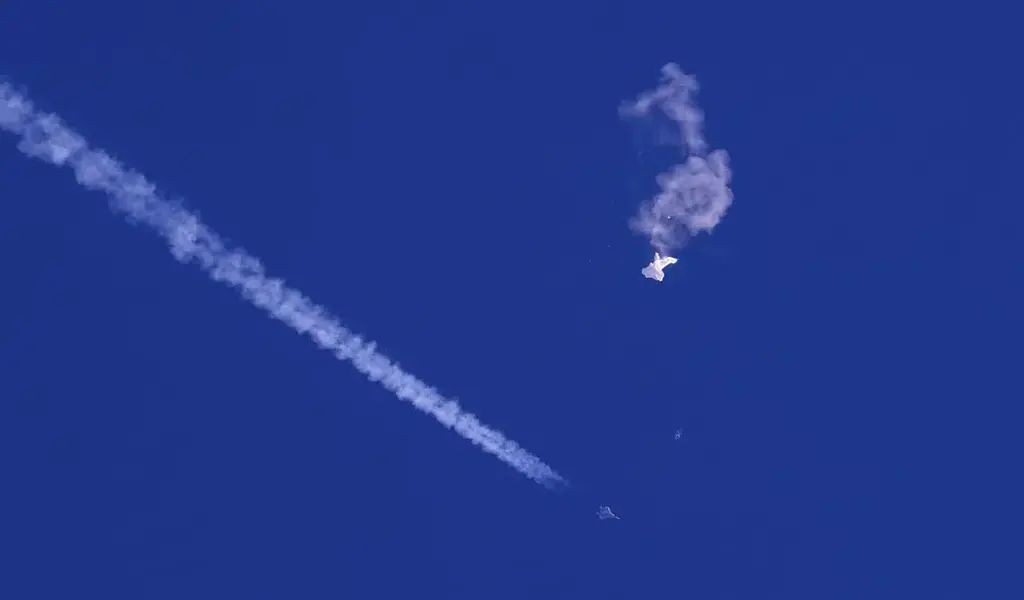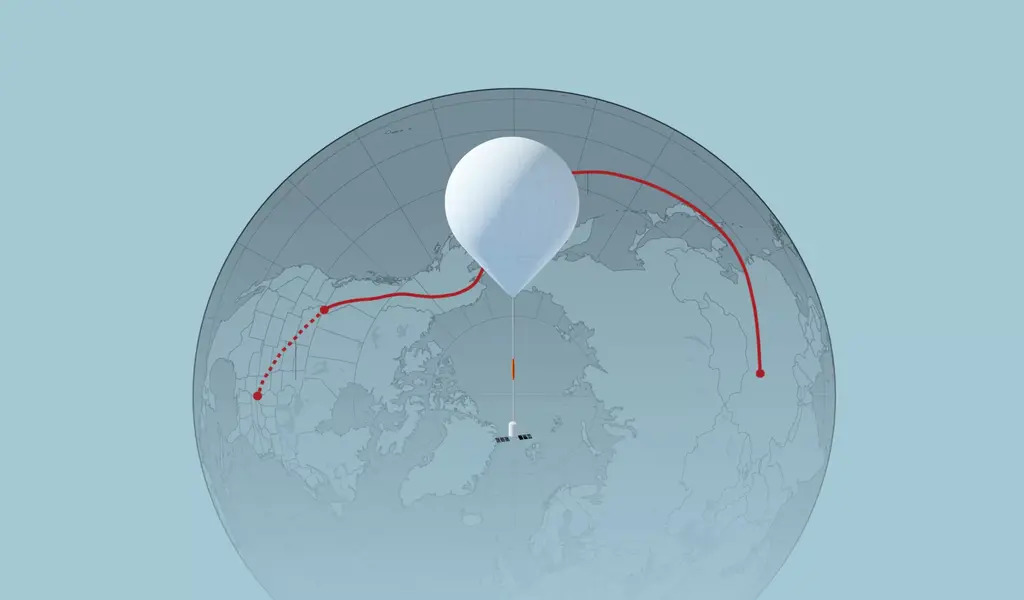(CTN NEWS) – BEIJING –After the American military shot down a suspected Chinese surveillance balloon on Saturday, China accused the United States on Monday of using excessive force.
Claiming that this had “seriously harmed and harmed both sides’ attempts and achievements in stabilizing Sino-U.S. ties.”
The United States shot down a balloon that had traveled over important military locations in North America off the coast of Carolina. China stated that the flyover resulted from an accident involving a passenger plane.
The “U.S. attack on a Chinese civilian unmanned blimp by military force,” according to Vice Foreign Minister Xie Feng, was the subject of an official complaint filed with the American Embassy on Sunday.
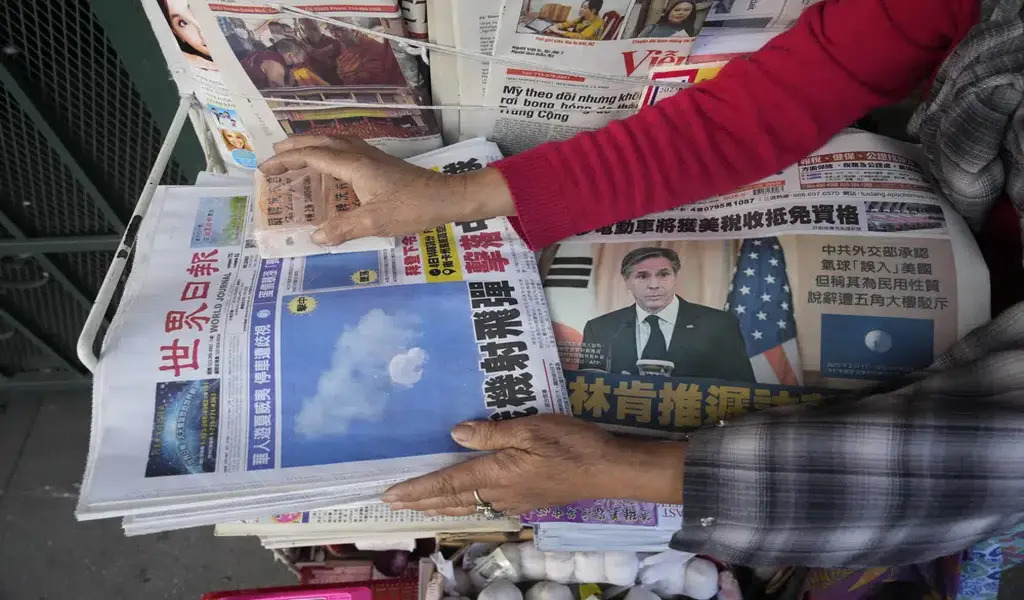
But the United States “turned a deaf ear and persisted on indiscriminate use of force on the civilian airship that was about to leave American airspace, manifestly overreacted and badly violated the spirit of international law and practice,” according to Xie.
Chinese-American relations, which were already tense and had been deteriorating for years, took a serious hit due to the balloon’s appearance in the skies above the United States.
It caused the sudden cancellation of a crucial trip to Beijing intended to defuse tensions by Secretary of State Antony Blinken.
Insisting that the balloon was a Chinese civil unmanned blimp that accidentally blew into the United States, Xie reiterated China’s position and called it “an unintended incident caused by force majeure.”
He declared that China would “firmly preserve the lawful rights and interests of Chinese firms, firmly safeguard China’s interests and dignity and reserve the right to make additional required responses.”
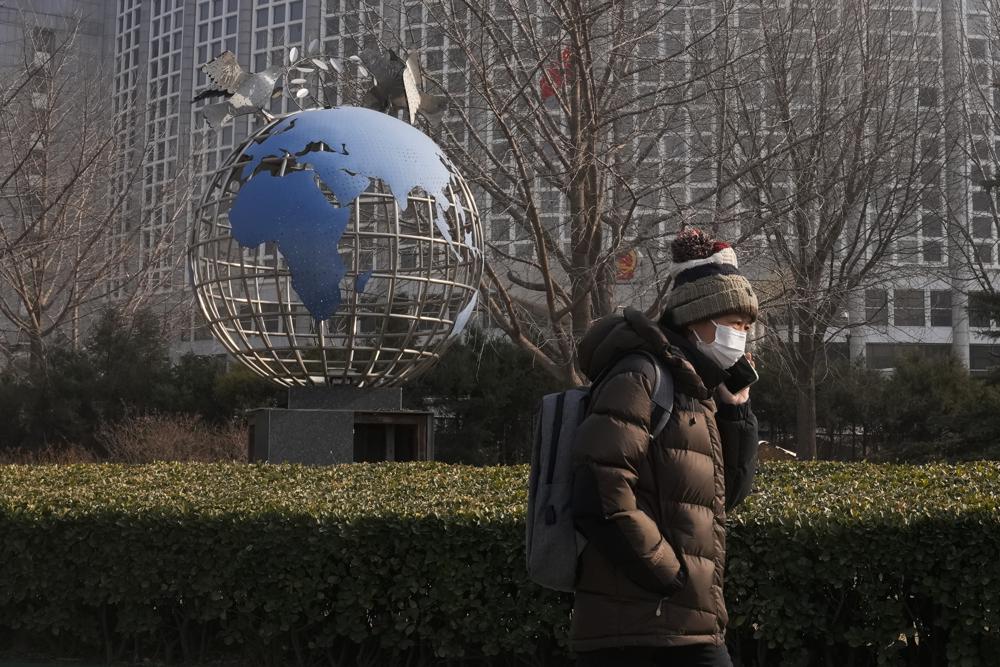
According to U.S. sources, U.S. President Joe Biden ordered the shootdown after being told that the operation would be most successful over the sea.
Military officials concluded that dropping the balloon down over land from a height of 60,000 feet (18,000 meters) would put persons in unnecessary danger.
“What the U.S. has done has gravely harmed and undermined both sides‘ efforts and progress in stabilizing Sino-U.S. ties since the Bali conference,”
Xie said about the recent summit between Vice President Joe Biden and his Chinese colleague Xi Jinping in Indonesia.
Many had hoped the meeting would spark good momentum for repairing relations, which had deteriorated to their worst point in years.
Mao Ning, a spokesman for the foreign ministry, gave no new information while reiterating China’s claims that the object was a civilian balloon used for meteorological research that was poorly maneuverable and crossed American airspace by accident.
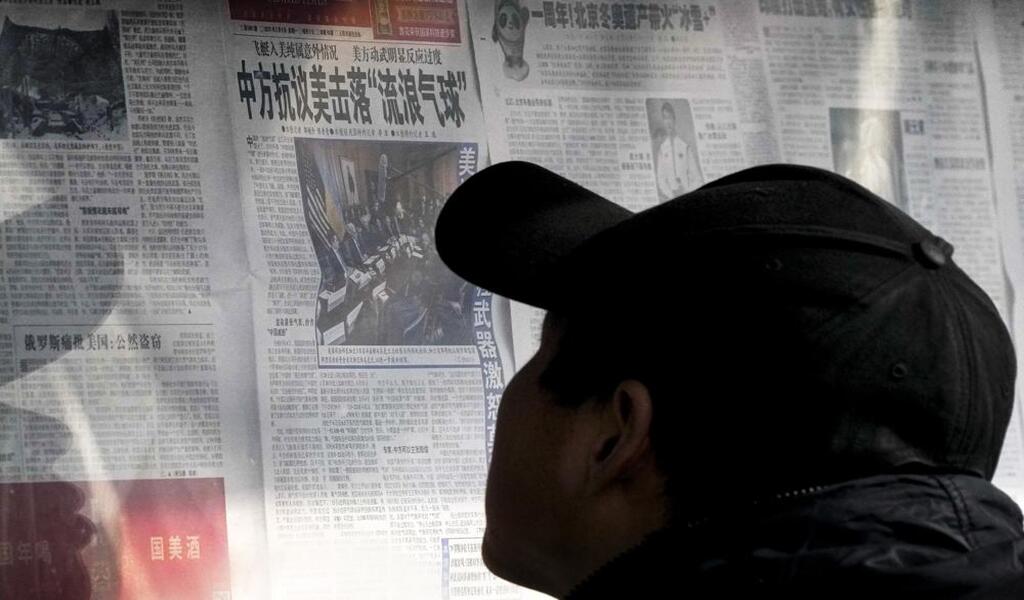
She also omitted to mention the extra measures China intended to take in retaliation to how Washington handled the situation and the postponement of Blinken’s trip.
Which would have made him the highest-ranking American official to visit China since the COVID-19 outbreak began.
Mao said at a daily briefing on Monday, “We have said that this is entirely an isolated and unintentional incident caused by force majeure, but the U.S. still hyped the situation on purpose and even utilized force to attack.” “This is a reckless and inappropriate action.”
A flying object resembling the one shot down by the U.S. has been seen at least twice over northern Japan since 2020, according to Japan’s Deputy Chief Cabinet Secretary Yoshihiko Isozaki, who told reporters on Monday.
Balloons believed or known to be Chinese have been seen from Latin America to Japan.
About the most recent example in the United States, he added, “We are still analyzing them.”
Washington and Beijing are at war over various topics, including trade and human rights, but China is especially sensitive about perceived infringement of its sovereignty and territorial integrity by the U.S. and others.
Beijing vehemently opposes arms transfers to Taiwan and foreign dignitaries visiting the island, which it regards as Chinese territory that should be reclaimed by force if necessary.
In response to Nancy Pelosi’s visit in 2022, it threatened military drills that were perceived as a practice for an invasion or blockade and launched missiles over the island.
Beijing has stopped talking to the United States about topics unrelated to military tensions, like climate change.
House Speaker Kevin McCarthy, Pelosi’s replacement, was forewarned by Mao last week not to visit Taiwan, hinting that China would respond with an equally vibrant retaliation.
Mao declared that China would vigorously defend its security, development, and sovereignty interests. China has no authority, according to McCarthy, to limit its travel options.
Assuming they are purposefully provocative, China also takes offense when foreign warships and military surveillance aircraft sail across the Taiwan Strait and fly off its coast in international airspace.
In 2001, a Chinese fighter pilot was killed when a U.S. Navy plane conducting normal surveillance near the Chinese coast collided with it, damaging the American plane and forcing an emergency landing at a Chinese navy installation on the southern Chinese island province of Hainan.
Before the United States expressed sadness for the Chinese pilot’s passing and for having landed at the facility without permission, China imprisoned the 24-person U.S. Navy aircrew for ten days.
Another significant cause of conflict is the South China Sea. China objects when U.S. Navy ships pass Chinese military installations in the vital sea, which it practically completely claims.
Blinken stated that the existence of this surveillance balloon over the United States in our sky is a clear infringement of our sovereignty.
A clear violation of international law, and unacceptable at a news conference he attended on Friday with his South Korean colleague.
And we have explicitly stated that to China.
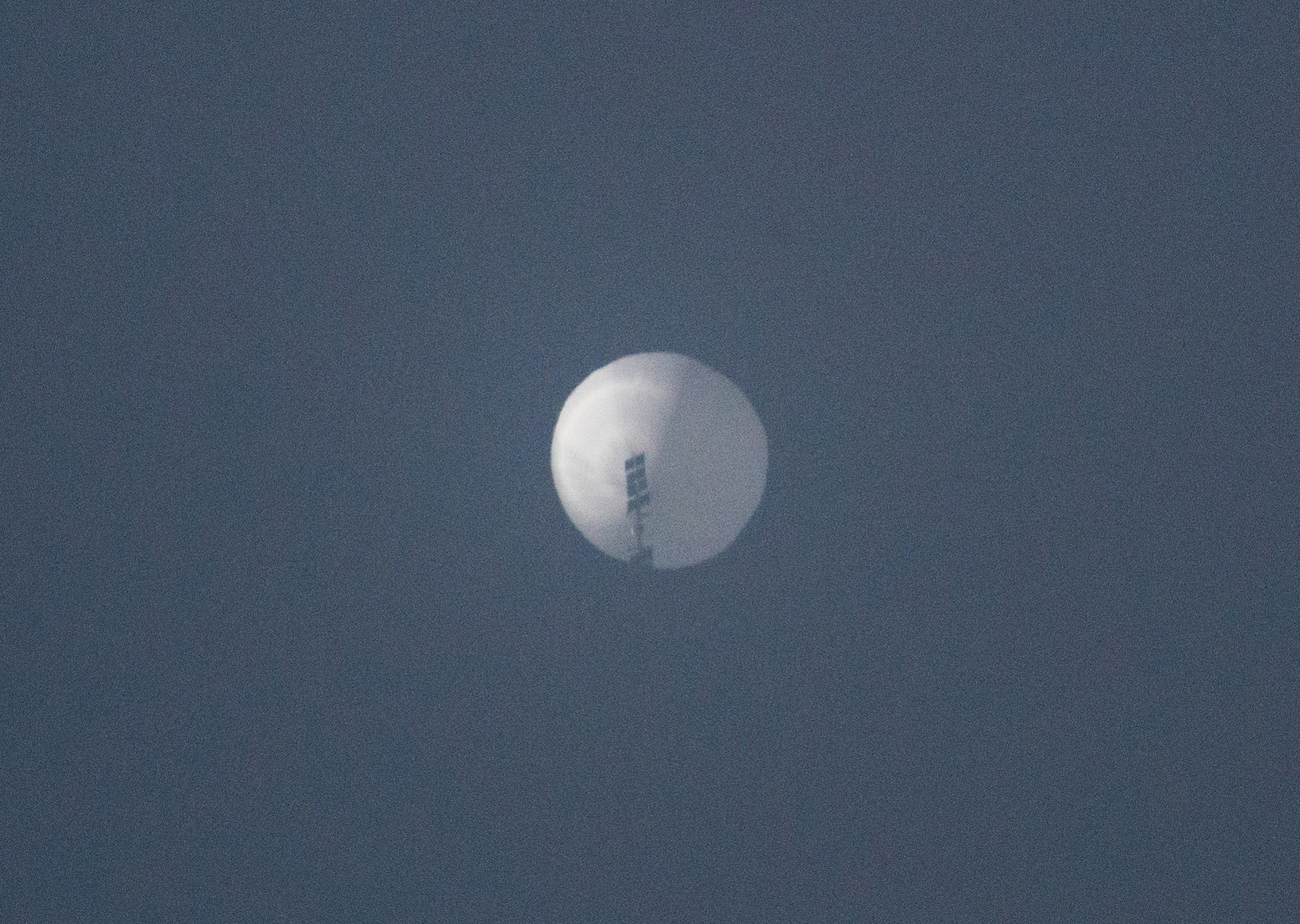
According to Blinken, “I believe that any country that had its airspace invaded in this manner would respond similarly, and I can only imagine what the reaction would be in China if they were on the receiving end.”
Oriana Skylar Mastro, a Stanford University expert on Chinese military affairs and international policy, believes that China’s reason for involving weather balloons should be completely disregarded.
Mastro added, “This is a normal thing that countries often say regarding surveillance assets.”
It’s possible that China made a mistake and lost control of the balloon, but Mastro doubts that it was done on purpose to obstruct Blinken’s visit.
The U.S. administration decided to publicly shoot down the balloon instead of engaging with Beijing privately as is customary, perhaps to influence China’s behavior in the future.
Mastro noted that it was unlikely Beijing would react favorably.
“They’re probably going to ignore that and carry on as usual. Therefore, I don’t think there will be a obvious road to better relations shortly.”
RELATED CTN NEWS:


